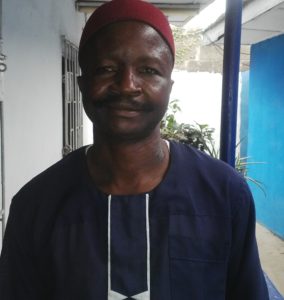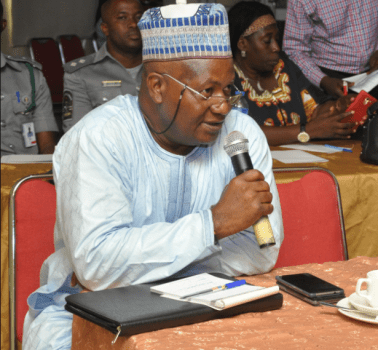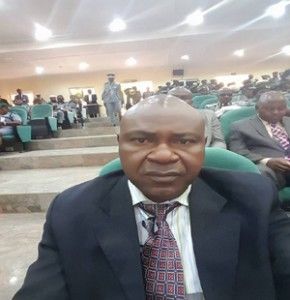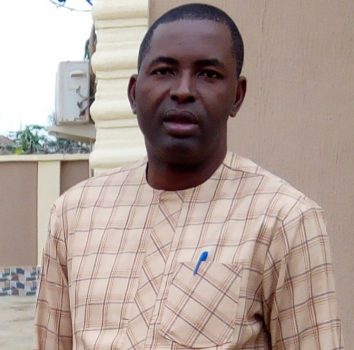
It is just like curing the symptom of a sickness and then the sickness is not cured. It is like moving traffic from Apapa to Lekki which has not solved the problem. Which roads are we going to use to move the cargoes within Lekki? Is it the same roads which are built without the concept of having high quality bill of quantity in view given the cargo throughput that will be passing through the road. We need to look at it objectively. Which trucks will be used on these roads? Is it these wrecks that are within the Apapa metropolis? Let us begin to think out of the box on how to link up all our seaports with functional railway lines as it is done in developed countries. That is when we would be seen as solving the problem and not the symptoms.
The question is: will the men of timbre and caliber that owned the transport units in the country allow the railway to see the light of the day? The vision of the founding fathers in coming up with the concept of intermodalism that is moving cargoes and persons from seaport to the rail, from the rail to the road and then to the hinterlands but how many of our seaports are directly connected to the rail and to the airport? How many are motorable?
The problem is multifaceted. We need to take drastic approach to addressing these perennial problem of traffic menace within Lagos metropolis. Lagos is a mega city that can be compared with any other city in the world but the traffic situation and its attendant insecurity challenges is worrisome. My take on this is that, all seaports in the country should be linked up with railway lines so that the roads will be free and have less pressure than what we have today. No matter how the roads are built or maintained, over time they will dilapidate because of the volume of goods that are going through the roads. Let us not forget that Nigeria is an import dependent nation. That means almost everything we consume in the country is imported. We should be seen to be solving the problem of traffic logjam in Lagos State in particular and Nigeria in general.

The Lekki deep seaport is a massive project. My fear is that upon completion, the location of the port could become another nightmare like the Apapa and Tin Can Island ports which have become a problem in Lagos. The absence of plans for rail connectivity and use of barges on inland water access to the port are some of the challenges facing the multibillion dollars project. Go to Apapa and see the huge but avoidable national embarrassment that is going on there. There is congestion within and around the Lagos ports because over 95 per cent of our cargo goes on the road. Therefore, both the Lagos State Government and the promoters of the Lekki port must ensure that we have a seamless cargo evacuation from the port. These fears are not unfounded considering that upon completion, the Ibeju-Lekki-Epe axis will be home to huge traffic arising from the operations of the deep seaport and the Dangote Refinery among the other major projects sited in the Lekki Free Trade Zone. I know it is not too late to include the rail in the project because adjustments are possible in any ongoing project.

Yes it will. Just take a look at what has become of the Oshodi-Apapa road, particularly around the Tin Can port area. For almost 15 years, the seaports access roads have been deteriorating rapidly without any government’s response to it, until the recent past. So, except rail roads are quickly constructed or deliberate attempts are made at constructing port cargo specific lanes/roads around the Lekki deep seaport area, the Lekki-Epe expressway is as good as the Oshodi-Apapa expressway. Alternatively, barges may be deployed in evacuating cargoes without using the Lekki-Epe road, thereby prolonging the lifespan of the road and taking trucks-traffic away from it.

Naturally, how speedily a vehicle moves on the road depends on a lot of factors including the state of the road and the cars of others sharing the road at a particular time. We know that the presence of loading bay increases vehicle traffic on the particular route that leads to such loading bay. We are also aware that port is one of such loading bay and its presence will greatly increase the presence of articulated trucks in that axis. Lekki-Epe corridor is an upwardly mobile neighbourhood that have high volume vehicular movement. In designing the port in that area, multimodal transport concept must have been considered. Aside from rail, inland waterways may have been considered, bearing in mind the cluster of water channels in that area. However, if other modes of transport were not considered, definitely those in that axis will be lamenting like those in Apapa are doing presently.

Yes, it is likely but something could be done by government or private sector to expand the road now. Actually, when the port is fully in operations, we will have more traffic toward that direction, either to pick or drop containers.
Copyright Ships & Ports Ltd. Permission to use quotations from this article is granted subject to appropriate credit given to www.shipsandports.com.ng as the source.